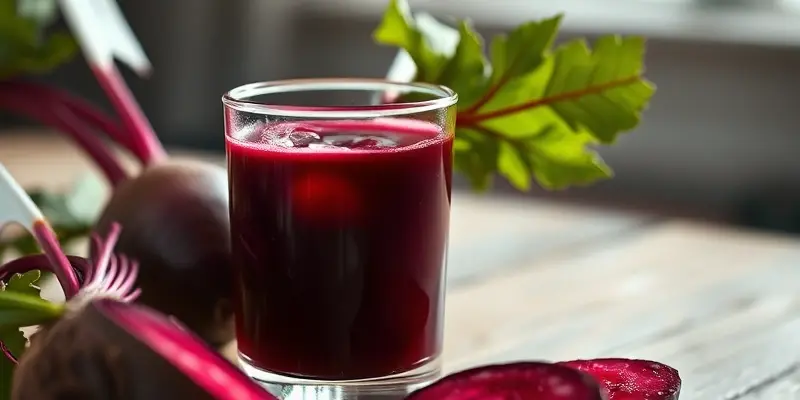Introduction
Do you ever feel stuck in your recovery after a tough workout, or worry about recurring injuries? You’re not alone. Recovery and injury prevention are top concerns for everyone from weekend warriors to seasoned competitors. Recently, beetroot juice has emerged as a game-changer in sports nutrition—and not just for endurance junkies. But is it really worth adding to your toolbox?
In this post, let’s cut through the hype and break down what science really says about beetroot juice, how it helps, and practical ways you can use it for faster recovery and fewer injuries.
The Science: How Beetroot Juice Works
Let’s start with the basics. The secret behind beetroot juice is its high content of dietary nitrates—compounds that get converted to nitric oxide (NO) in your body.
Think of nitric oxide as WD-40 for your blood vessels: it helps them relax and open wider, a process called vasodilation. This makes it easier for blood to deliver oxygen and nutrients to your working muscles—right when you need them most.
Key Points:
- Beetroot is rich in nitrates.
- Nitrates → nitric oxide in the body.
- Nitric oxide = better blood flow and oxygen delivery.
Endurance and Performance Benefits
So what does all this extra oxygen do? In simple terms, it lets your muscles work harder for longer, and with less effort.
Imagine running a 5K and feeling like you’ve suddenly found an extra gear—studies have shown that beetroot juice can:
- Lower the oxygen cost of exercise (your muscles use oxygen more efficiently).
- Increase time to exhaustion, meaning you can maintain a tough pace for longer.
- Provide the biggest boost for recreational athletes and those with moderate fitness, though elite athletes may also see benefits with the right protocol.
Example: In endurance events, some athletes who supplement with beetroot juice find they can push faster or longer before fatigue sets in.
Recovery and Injury Prevention
But it’s not just about going harder during your workout. Beetroot juice also supports what happens after you train:
- Faster muscle repair: The improved blood flow means muscles get nutrients for repair sooner.
- Inflammation control: Nitric oxide helps regulate inflammation, reducing soreness and speeding recovery.
- Stronger immune response: Good circulation means your immune cells get where they’re needed, which can help manage minor muscle damage and lower risk of infections after taxing workouts.
- Electrolyte balance: NO may also help muscles stay in sync, lessening cramps and the risk of overuse injuries.
Real-world impact? Less time on the sidelines, more confidence to bounce back safely after hard sessions. For a comprehensive approach, consider also following our injury recovery checklist to optimize your healing process.
Practical Tips for Using Beetroot Juice
So how can you make beetroot juice work for you?
Dosage & Timing
- Aim for about 500 ml (two cups) of beetroot juice, ideally providing 5–9 mmol of nitrate.
- Drink it 2–3 hours before exercise for best absorption and effect.
Who Should Avoid?
- Those with kidney issues or who are prone to digestive upset should check with their doctor first.
- If you see red urine or stool—don’t panic! It’s harmless.
How to Integrate Beetroot Juice
- Try it before key workouts or competitions.
- Add it to a balanced diet—you can also eat nitrate-rich greens (spinach, arugula) for variety.
- Use endurance and recovery trackers to monitor how your body responds.
Frequently Asked Questions
Is beetroot juice legal in sports?
Yes, it’s WADA-compliant and widely used by professionals.
Is it really effective?
Research supports improved endurance and signs of faster recovery, though results vary by individual.
Can I get the same benefit from other foods?
Leafy greens are also nitrate-rich, but beetroot juice makes accurate dosing easy.
Conclusion
Whether you’re striving for a new personal best or just looking to bounce back faster after tough workouts, beetroot juice offers a natural, science-backed edge. By supporting blood flow, enhancing endurance, and speeding recovery, it can be a prized asset in your athletic routine.
Remember, recovery isn’t just about rest—it’s about giving your body the nutrients and support it needs to come back stronger (and injury-free). Consider giving beetroot juice a try, and see how it helps you stay at the top of your game.
Stay strong, stay smart, and train with confidence!
Want more evidence-based tips like these? Subscribe to GymPulse Club for honest, actionable fitness insights from our expert team.

